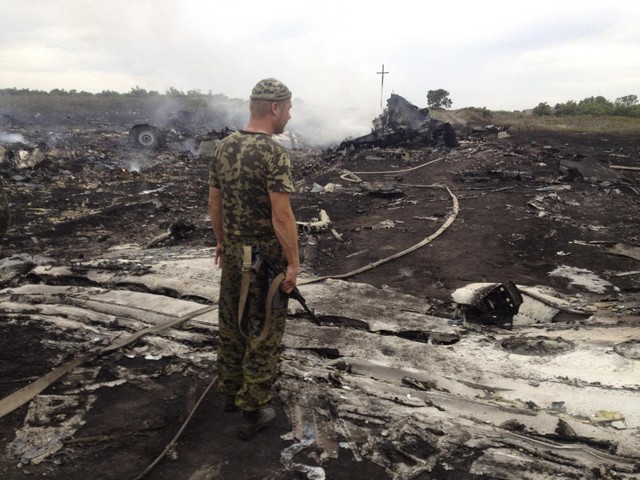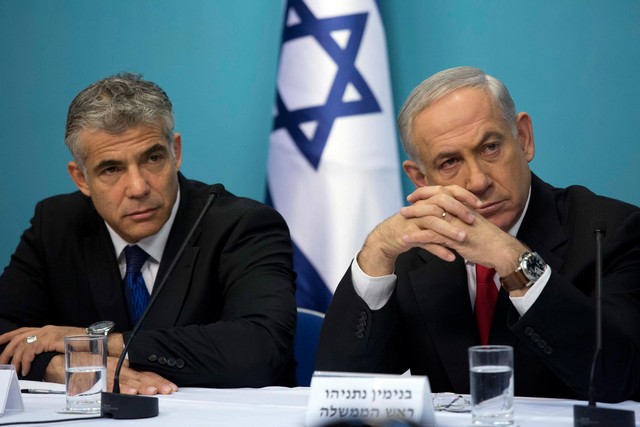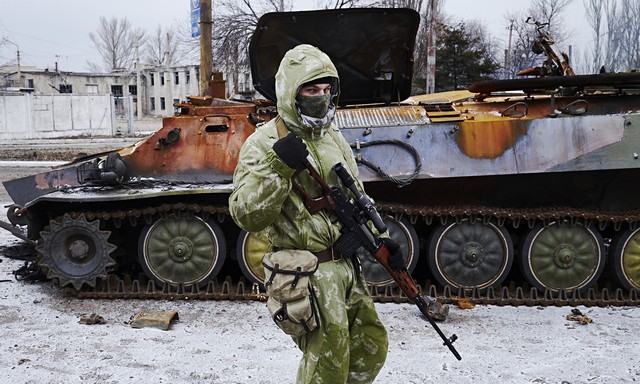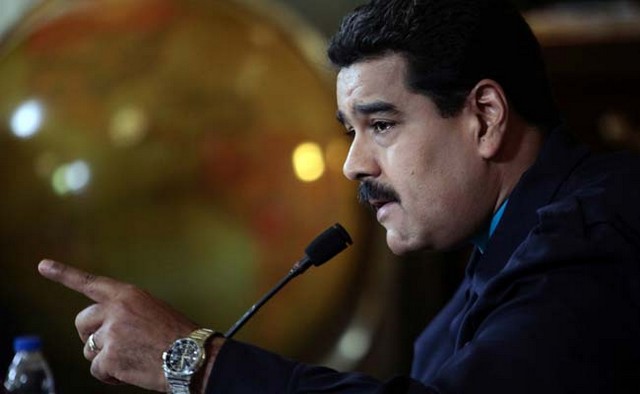By Dick Platkin and Jeff Warner
“Our alliance with America is transitory.”
Israeli writer Amos Oz in the March 8, 2015, Los Angeles Times
For those who carefully follow the relationship between the governments of the United States and Israel, the dust-up over Israeli Prime Minister Netanyahu’s March 3, 2015,anti-Iran speech to a joint session of Congress comes as no surprise. In fact, we think the handwriting has been on the wall since last year, and it was predicted by Jeffrey Goldberg in his October 2014 article in The Atlantic. Despite the content of Netanyahu speech,according to Ha’Aretz the underlying issues have much more to do with the construction of an apartheid Greater Israel than with Iran’s nuclear program.
In an attempt to put Netanyahu’s Congressional speech about Iran into a historical and political context, we describe the current situation in Israel-Palestine and the crucial role of the United States government in supporting the occupation and the incremental construction of an apartheid state. We also analyze several scenariosin which the Israel-Palestine conflict could resolve when, not if, the US government is no longer willing or able to support Israel’s long-term settlement program in the occupied territories. In essence, we try to explain how the decline of US dominance in the Middle East, including reengagement with Iran, means that Israel’s occupation is not sustainable. Our analysisalso offers many new political opportunities to anti-occupation activists in the wake of U.S. decline.
Greater Israel on the Road to Apartheid: Israel today, from the Mediterranean to the Jordan River, is effectively a single state, referred to as Greater Israel by its architects and supporters. Many analysts, such as Jeff Halper, Director of the Israeli Committee Against House Demolitions (ICAHD),have pointed out that this de facto single state is quickly developing a system of apartheid in the territories Israel captured in 1967 during the Six Day War. In contrast, the areas within Israel’s 1948-1967 Green Line boundaries have legal and quasi-legal segregation, but not yet full-blown apartheid. Furthermore, the legal structure of this emerging apartheid state differs between those areas annexed by Israel after the Six Day War (East Jerusalem andGolan Heights) and the territories remaining under direct and indirect military control (West Bank and Gaza Strip). Israeli civil authorities govern all those living in the former, while Palestinians living in the occupied areas are controlled by the Israeli military, unlike adjacent Israeli settlers, who are governed by the same civil authorities running the Israeli state within the Green Line.
To date over 500,000 Israeli Jews have been moved into the neighborhoods of annexed East Jerusalem and into the occupied West Bank. In most cases they are protected by the Israeli military in heavily fortified towns and cities, euphemistically called “settlements” by the press and even most opponents, although more critics are now referring to them as colonial outposts.
An obvious consequence of the rapid construction of Greater Israel is the deliberate geographical and political demise of a viable two state solution, an independent Palestinian state alongside Israel. This is because a sovereign Palestinian state is incompatible with an Israeli stateoccupying the same territory and maintaining an authoritarian military regime that implants and protects hundreds of thousands of Israeli Jewish settlers.
There are also parallel political factors that block the emergence of a Palestinian state, as defined by the Oslo Accords, most importantly the recent frankness of Israeli officialswho openly oppose a two state solution, particularly Prime Minister Netanyahu during those rare moments when he is not deflecting attention away from settlements and toward Iran. On July 11, 2014, he declared, “There cannot be a situation, under any agreement, in which we [Israel] relinquish security control of the territory west of the River Jordan [meaning the West Bank].”
Other political factors include the rapid growth of extremely right-wing and often religious Israeli political parties and factions, such as the Price Tag group, which engages in systematic violence against Christian and Palestinian property. These movements have not only infiltrated the Israel Defense Forces (IDF)but also violently intimidatedIsraeli moderates still committed to a two-state solution. The most important political factor is, however, the U.S. government’s carte blanche, bi-partisanmaterial and political support for Greater Israel, especially lethal Israeli military attacks designed to weaken Palestinian national aspirations, in particular Cast Lead (2008-9) and Protective Edge (2014).
Despite occasional press statements from the White House and State Department critical of Prime Minister Netanyahu and expanded Israeli civilian outposts and towns in the areas intended for the Palestinian state (by numerous UN resolutions and the Oslo Accords) are unhelpful, the day-to-day construction of Greater Israel’s “facts on the ground” has the full backing of the United States government, including both Republican and Democratic administrations. Israel’s reliance on a great power is not a new phenomenon, as Prof. Avi Shlaim pointed out in his 2001 book The Iron Wall, Israel and the Arab World, ”This has always been Israel’s modus operandi, as it was for the Yishuv, the pre-state Jewish community in Palestine.”
In the late 1890s Theodor Herzl focused on building a Jewish state under the auspices of the Ottoman Empire. The first major step towards a Jewish state, however, came in 1917 when Chaim Weizmann successfully obtained the Balfour Declaration from the British government in the midst of World War I, prior to the British victory over the Ottoman Empire. The USSR and its client Czechoslovakia later provided life-saving military support to Israel during the 1948 war. The French subsequently armed Israel for the 1967 war, and the United States has been Israel’s primarybenefactor ever since.
Jeff Halper made a similar point in his 2005 essay entitled “Israel as Extension of American Empire.” He wrote, “Israel’s leading position in this [U.S.] military alliance, has global implications, but is also gives Israel the military strength and political umbrella needed to transform its Occupation into annexation while advancing the Pax Americana over the Middle East.”
In the past 48 yearsthe U.S. government backing for Greater Israel has included extensivefinancial support, grants and transfers of military hardware and technology, intelligence sharing, diplomatic protection at the United Nations, tax-exempt status for private donations to settler organizations, permission for U.S. citizens to join the Israeli military, and mind-numbing repetition of Israeli government talking points. This support is essential for Israel to maintain its post-1967 annexations and occupations, which, cumulatively results in the de facto construction of an apartheid state.
U.S. Decline in the Middle East: There is afly in this ointment, however,and it is the slow and uneven decline of the United State in the Middle East, as expressed by its growing inability to influence events and successfully project power throughout the region. True, the United States has been the dominant power in the Middle East since it supplanted the British, beginning in the1950s. Throughout this entire period the U.S. has built an enormous network of military bases, directly and indirectly waged many wars, and supporteda host of oppressive regimes, includingIsrael, Jordan, Kuwait, Egypt, Yemen, and Saudi Arabia, mostly characterized by neoliberal economic policies that favor a small elite at the expense of the general public.
Many people believe this Pax Americana is permanent because the U.S.can still unleash massive death and destruction, mostly from the air. But, despite this enormous firepower, the United States has been totally unable to transform Middle East blood baths into political victories, whether through its own wars in Iraq and Libya, or through its historic proxies, Israel, Jordan, and Saudi Arabia.
American decline is evidenced by manymilitary and political failures in this region and elsewhere:
· Its bloated military has not been able to decisively win any war since WW-II, most recently its failed invasions and occupations of Afghanistan and Iraq during the Bush and Obama administrations, and its faltering fight against the Islamic State in Iraq, Syria, and possibly Libya.
· Its former regional hegemon for the Persian Gulf, Iran, successfully bolted from US domination in 1979 and has been at odds with the United States ever since. Furthermore, the present nuclear negotiations between the U.S and Iran indicate that some foreign policy realists are finally coming to terms with the U.S. government’s declining political influence in the Middle East. In fact, it is this fledgling realignment of U.S. policy in the region, not Iran’s nuclear programs, that so alarms Israeli rightists, such as Netanyahu. They know that Greater Israel demands unwavering support from the U.S. government.
· Its foremost regional ally in the Middle East, Israel, has not unwilling to use its vast arsenal of American military hardware to assist the U.S. in Iraq, Afghanistan, Yemen, Libya, or areas of Sunni Jihadist activity, most notably the Islamic State in Syria. For that matter, Israel has not even succeeded in defeating two small Islamic forces in adjacent areas, Hezbollah and Hamas, despite inflicting enormous death and destruction on Lebanon and Gaza. As “gratitude” for continued U.S supportof these assaults, the Israeli government has openly disparaged the U.S.President, Vice President, and Secretary of State. It even attempted to interfere in American elections, supporting Republican Mitt Romney for President in the 2012. And, most recently Israel bypassed traditionaldiplomatic protocol by wangling an invitation for Prime Minister Netanyahu to speak directly to Congress, without first contacting the White House.
· The United States has employed hundreds of drone attacks against perceived threats in Yemen, Mali, Somalia, Iraq, Syria, Pakistan, and Afghanistan. So far, this high tech version of Whack-a-Mole has not made the slightest difference in these countries, other than assisting the recruiting drives of Jihadist groups, especially the Islamic State.
· The United States has had few successes in influencing events in the Arab Spring, such as keeping its loyal satrap, Hosni Mubarak, in power in Egypt. Meanwhile, its one direct military intervention related to the Arab Spring, Libya, is an unmitigated disaster, including the murder of the US Ambassador by one of the country’s many warring Islamic militias, which now includes the Islamic State.
· Finally, in Syria, the uprising against the Assad regime is totally beyond the reach of the United States or its regional allies, Israel, Turkey, Iraq, and Jordan. Instead, Turkey, Saudi Arabia, and other Gulf Monarchies have supported the Sunni Jihadist opposition to Assad, a tactic that has directly led to the explosive growth and military successes of the Islamic State against the US client state of Iraq.
· In desperate efforts to maintain the government the U.S. installed in Iraq, the “coalition” attacks on the Islamic State in Syria have made the U.S. an ally of Assad, Hezbollah, and Iran, while it now totally at odds with its former ally Turkey, which favor the Sunni opposition to Assad. Meanwhile Israel periodically attacks Hezbollah, a military ally of Assad and Iran.
· Finally, as the US coalition against the Islamic State unravels, President Obama is asking Congress to authorize direct U.S. military intervention.
The Trajectory of Decline: Like the French and British empires that preceded it in the Middle East, U.S.imperial declinedoes not have a smooth trajectory, butit will profoundly impact countries and non-state actors across the entire region, from Morocco to Pakistan. When the “American Century” finally draws to a close, the unraveling of the existing order will accelerate, and there will be dramatic repercussions in many areas, including Israel-Palestine. The waning of U.S. power means that at some point the U.S. government will either be technically unable or politically unwilling to sustain Greater Israel. Israel’s eventual loss of support from the region’s currenthegemonic power – presaged by the pushback against Netanyahu’s speech to Congress — will become a critical barrier to itslong-term consolidationof an apartheid state.
At present the U.S. government’s backing for the construction of Greater Israel is maintained by the power of the Israel lobby. But, according to Peter Beinert, the lobby’s power is declining as the older leaders of the Jewish component of the Israel Lobby are replaced by younger Jewish-Americans with more liberal, egalitarian, secular, and humanistic political values. This insight was recently repeated by Ha’Aretz columnist Ari Shavit, who wrote:
However, our common values don’t accord with the removal of Arabs from buses in Judea and Samaria, with the undermining and neutralization of the (Israeli) Supreme Court, or with the constant and perplexing settlement drive. An Israel that occupies, settles and discriminates is not an Israel that the United States can continue to back indefinitely.An Israel that insists on behaving like a bull in a china shop will sooner or later lose the support of America’s younger generation. This won’t happen next week or next month, not even next year. But it will happen. If the head-trippers in Israel continue on their path, the collapse will inevitably come.
The coming generation of Jewish American leaderswill not blindly accept Israel’s continued dispossession and oppression of Palestinians, especially as cracks in the U.S. foreign policy establishment regarding Israel and Palestine, including the Israel Lobby itself, become more public, as evidenced by their response to Netanyahu’s scheduled address to Congress. Furthermore, younger Jewish leaders will become increasingly uncomfortable with the rise of Israel’s religious-tinged, xenophobic nationalism, including the harassment of governmental critics, because it reminds them of the racism and political repression they associate with fascism. In their case, pointing a finger at Iran will not succeed in counteracting their distress with Israel.
As the influence of the Israel lobby ebbs,including from Christian Zionists, it will be less able to convince the White House, Congress, and the Pentagon to maintain their unconditional, bi-partisan political, military, intelligence, and financial support for Greater Israel.
In addition to the decline of the Israel Lobby, there are several other factors slowly undermining the U.S. government’s support for Israeli apartheid. Within the foreign policy establishment there is a clear consensus to repair relations with Iran and shift US military forces from the Middle East to China, often called “The Pivot to Asia.” Other secondary factors include growing Palestinian opposition to Greater Israel, as evidenced by the IDF’s inability to defeat Hamas, even with full US support, as well as broad international Palestinian solidaritygroupsundertaking economic and cultural boycotts of Israel. In addition, the divestment movement is finally gaining traction, as indicated by the Presbyterian Church’s recent divestment decision. So far there have been no U.S. Government sanctions against Israel, but the calls for such sanctions can now be heard, such as in Chris Hedge’s column at Truthdig.com at the beginning of Decisive Edge. Later Noam Chomsky made a similar call when he recently spoke at the United Nations.
Without the US government’s full support, it is extremely unlikely that a politically isolated Israel could sustain an increasingly repressive apartheid regime by itself. Israeli apartheid, even more thanits current annexations and occupation, depends on major military, financial, diplomatic, and media support from an outside power. For the foreseeable future Israeli prosperity and technology is simply not powerful enough to fill the void, especially because the country has so much internal economic inequality and political discontent to overcome.
Furthermore, once the role of the United States weakens, there is no other global power on the horizon — not the EU, China, or Russia — that would readily replace theU.S. lifeline to an apartheid Israeli state. While these forces would quickly fill voids throughout the Middle East created by the demise of the United States, their priority would be securing petroleum reserves and shipping routes, not propping up a politically isolated Israeli pariah state.
The Collapse of Greater Israel – Some Scenarios: Long before U.S. government support for Greater Israel withers away, Palestinian resistance will likely shift from demands for a sovereign Palestinian mini-state to campaigns for civil, economic, and political rights within Greater Israel. As the Palestinian struggle for equal rights garners support from progressive Israelis sharing a common egalitarian political and economic agenda, and as well as international support, the stage will be set for the rapid and turbulent unraveling of Greater Israel. If we also factor in the long and cyclical history of anti-racist and anti-war movements in the United States, domestic opposition to the US government’s support for Greater Israel could also become a significant factor accelerating the country’s retreat from the Middle East, including the likelihood of a U.S. military conflict with Iran.
When this day of reckoning finally comes, several scenarios are likely. The rights-based Palestinian struggle, combined with the loss of U.S. government support, points to a bumpy transition to several alternative one-state formulas: a single, non-ethnocratic democratic state (like South Africa) or a bi-national state. Ian Lustick explored these one state options in the New York Times, as did John Mearsheimer in his 2012 lecture at the Palestine Center.
The reaction to these one-state proposals and campaigns — mostly Palestinian, but also from alternative Israeli voices– for a liberal unitary state, could unleash several wildly different responses among Israelis. Liberal Zionists like Amos Oz, Peter Beinart, Ari Shavit, and Uri Avnery, hope that once Jewish Israelis fully understand that a single democratic state — regardless of the exact model — would have a non-Jewish majority, they will realize that – like South Africa — this is the moment for serious compromise. Given their determination to maintain a Jewish majority state to protect them from their fears of a future Holocaust — as emphasized by Avi Shavit in his 2013 book My Promised Land, The Triumph and tragedy of Israel — the Israeli government would reluctantly abandon Greater Israel. It would then be forced to finally accept a sovereign Palestinian state alongside an Israeli Jewish state within its 1967 boundaries. If this scenario prevailed, the Israeli government would have finally complied with the Oslo Accords, the U.N. Security Council resolutions 242 (1967) and 338 (1973), and the Arab Peace Initiative of 2002, renewed in 2007 and 2013.
Furthermore, the two-state solution would be more robust if it emerged as part of a Palestine-Israel economic confederation, as described by Jeff Halper in 2007. If this confederation provided for the free exchange of labor and capital, as the European Union does, citizens of both the Jewish and the Palestinian states would be able to live and work anywhere between the Jordan River and the Mediterranean coast. This would, in theory, allow Jews to live in the Biblically significant West Bank, and Palestinians to return to the remnants of their ancestral villages within Israel’s abandoned Green Line.Josef Avesar describes a different confederation model, based on legal factors, in his 2011 book, “Peace, A Case for an Israeli Palestinian Confederation.”
Besides these peaceful outcomes emerging from the collapse of apartheid Greater Israel, there are also grim, violent scenarios.
The downside of Israel finally implementing a two-state solution is that it would mean the forced transfer of about 150,000 to 500,000 settlers into Israel proper, or leaving them in place to become Palestinian citizens. Either option could spark a Jewish civil war, accompanied by many attacks onIsraeli soldiers and atrocities against Palestinians that are certain to trigger equally violent reactions. This scenario is extremely foreboding, and it cannot be dismissed considering the amounts of settler violence against both Palestinians and Israel soldiers in recent years, already carefully documented by B’Tselem, the Israeli human rights organization.
A pariah Israel state may also indulge in a devastating last stand that would lead to wide-scale destruction of everything and everyone within its boundaries. This might be a modern version of the Samson story in which he brought destruction to the Philistines through his own suicide. If Greater Israel’s last stand combined with a regional war in which the United States and its other Middle East proxies, such as Jordan, Kuwait, Qatar, UAE, and Saudi Arabia joined forces, perhaps against Iran, WW III scenarios must be considered a possible outcome.
Another destructive possibility is the collapse of the Israel state and Palestinian communities through a massive out-migration of modern, secular Israelis and Palestinians. This could produce two failed states: on one side a Jewish population of zealous nationalists and ultra-orthodox Jews, and on the other side extremist Islamic Palestinians.
In order to assure that a non-destructive outcome emerges, it is essential that we fully analyze the peaceful rather than apocalyptic outcomes. While we still can, we need to spell-out these peaceful options in detail, and pursue practical ways to promote them in both the US and in Israel-Palestine.
In fact, in a recent article Noam Chomsky came to these same conclusions and argued that the primary political focus of Americans concerned about Israel and Palestine must be the US government. In his words, “There is every reason to expect it [Greater Israel] to persist as long the United States provides the necessary military, economic, diplomatic, and ideological support. For those concerned with the rights of the brutalized Palestinians, there can no higher priority than working to change US policies.”
Historian Chalmers Johnson addressed the American side of the declining American empire and how anti-war activists can effectively oppose the descent of a globally declining US empire into horrific military spasms. He wrote, “The failure to begin to deal with our bloated military establishment and the profligate use of its missions for which it is hopelessly inappropriate will, sooner, rather than later, condemn the United States to a devastating trio of consequences: imperial overreach, perpetual war, and insolvency, leading to a likely collapse similar to that of the former Soviet Union.” Johnson then went on to outline a 10 step political program, including many grass roots initiatives, to finally tame U.S. militarism, including support for proxies, such as Israel.
Next Steps: Civic efforts, as described by Chalmers Johnson, can affect how the United States government reacts to its decline in the Middle East, and how that decline affects Israel-Palestine. His goal is to assure that the United States will retreat in an orderly way, modeled after the decline of the Soviet Union in 1999, and not resort to a violent last gasps of desperate military adventures to maintain its failing hegemony. These efforts, as outlined below, should also work to assure that Israel-Palestine transforms into an egalitarian one-state or two-state solution, avoiding mayhem in the process.
· Emphasize BDS sanctions by calling for the U.S. to halt arms sales to the entire region, including Israel, but also countries like Saudi Arabia.
· Follow the lead of Josh Ruebner (national advocacy director of the U.S. Campaign to End the Israeli Occupation),as well as the October 2012 Christian Clergy letter to lobby Congress, tocall for the United States to enforce the U.S. Arms Export Control Act and the Foreign Assistance Act.
· Fuse Israel-Palestine rallies, marches, and vigils with general anti-war and anti-police violence actions, such as Muslim and Black Lives Matter. These issues should be treated in a unified, not isolated manner.
· Clarify that sensible U.S. policies toward Israel-Palestine are just one element of sensible policies toward the entire Middle East, such as sanctions on shipments of U.S. military hardware to states that violate United Nations resolutions or use the equipment againsttheir civilian populations
Earlier versions of this paper were presented at the Los Angeles-based Levantine Cultural Center and the nationalconference of the U.S Campaign to End the Israeli Occupation in San Diego.Please send any comments and questions to info@lajewsforpeace.org.
Richard (Dick) Platkin is a founding member of LA Jews for Peace and also serves on the U.S. board of the Israeli Committee Against House Demolitions (ICAHD-USA). His writing on Middle East topics includes a critical review of Jeremy Ben Ami’s A New Voice for Israel for the Levantine Review. Platkin is also a city planner and sociologist, with three decades of professional experience in urban planning, applied social research, and college teaching.
Jeff Warner, Ph.D., is a Jewish peace activist in Los Angeles, active in the Cousin Club of Orange Country and LA Jews for Peace, where many of his articles are posted.
13 March, 2015
Countercurrents.org










